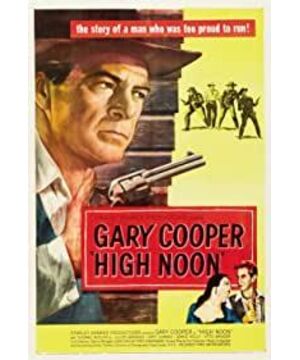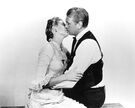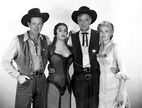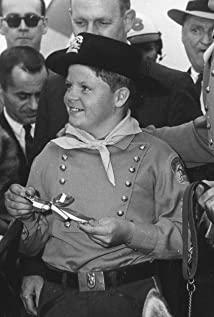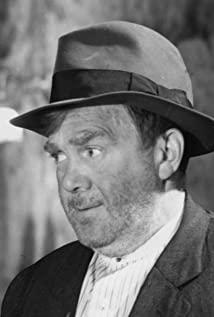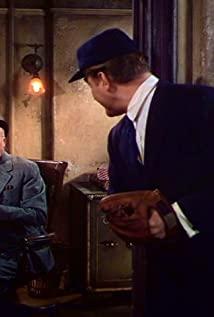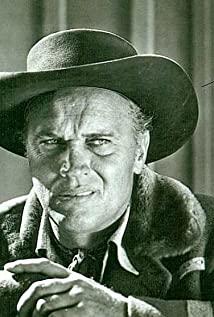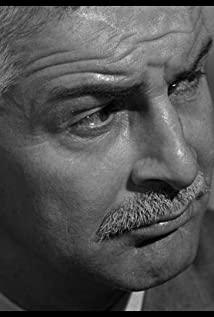"High Noon" is a classic Western film praised by Western film critics. American film critic Philip Hardon called it "a top-notch Western movie, comparable to "Flying Guanshan". Because of its clear theme, great social significance and high entertainment value, it is in It is outstanding in every respect." Another American film critic James Welsh also believes that "Noon is definitely a classic work, and its significance lies in the fact that Zinaman's realistic style has completely transformed the genre of westerns. It has abandoned it. The stylized and mythological traditions of westerns created the precedent of'psychological' westerns and represented one of Zinaman's most outstanding achievements."
Judging from the storyline, character configuration and image map of "Noon", it did not abandon the proper formula of the western film type: the sheriff who brought law and order to the wild west, the courageous hero was shooting six guns. Rescued the beauties in the rain of bullets, as the morally corrupt petty citizens as a symbol of human weakness, the desolate western grasslands and the just-passed trains, and the western towns with only one main street, the seemingly powerful evil is finally subdued by the justice of the backwater, as well as jeans, wide Indispensable props such as side hats, pistols, bullet belts, canopy carriages, etc. However, the creators of "Noon" injected rich psychological content into these programs and changed the traditional romantic ending of Western films. For Sheriff Kane, his main experience is a fierce moral war. When he hurried back to the town, he was psychologically balanced, because he overcame his cowardice and fear. At the same time, he was convinced that the townsfolk, who had been favored by him in the past five years, would undoubtedly warmly welcome and support him. Return to the battlefield. The historical story Metric told him-"In the 5th century BC, the citizens of Athens were ravaged by a tyrant, and later managed to oust and ban the tyrant. However, when he brought back foreign mercenaries a few years later At the time, not only were the citizens who opened the city gate to welcome him, but they were also the ones who watched by the sidelines when the legislative government officials were executed."-It didn't work for him at all. He just expressed his understanding for Meitrick's escape. The nails that the members of the municipal management committee touched him were not enough to cause his mental disorder. Of course old people are afraid of violence. It is Harvey and the strong men represented by Harvey that really put Kane into pain and despair. Kane has a weakness that the strong cannot avoid: ignoring the jealousy and resentment of the weak who work with him due to inferiority. Kane couldn't help being shocked when Harvey complained to him about what he was upset about. Kane couldn't understand this imaginary emotional entanglement and self-defeating extravagant hopes, and he couldn't tolerate it as a condition for cooperation. If the active police and strong men with security responsibilities are indifferent to the evil forces that are approaching, and even prepare to compromise (the hotel owner claims that the customers in the store are all "Frank’s friends", the hotel staff is preparing the best for Frank. Nice room), Kane is really sad and desperate. When he wrote the "Last Will" and walked out of the office exhaustedly, the "Western Hero"'s encounter with the enemy completely violated the mythological tradition of the Western movie genre. This is actually a "Western Hero" who has been completely defeated by the evil forces, slowly but firmly heading towards death.
Unlike traditional Westerns, Kane's ending. His victory was entirely out of luck, a victory that no one dared to come up to congratulate. The gangsters were eliminated, but the social conflict intensified instead. On the surface, his heroic actions seem to have saved the town, but in a moral sense, it has deepened the shame and humiliation of all the townspeople. The hero didn't wave goodbye to the residents who cheered him, and embraced the beloved beauty leaping on the horse with a high spirit. Instead, he was filled with disgust, threw away the police badge, and didn't look back on the galloping carriage.
"Noon" has another feature that is widely discussed in terms of time structure: the length of the story and the length of the film (that is, the actual length of time) are basically the same. The story started at 10:40 in the morning, and during the unfolding of the story, until the siren of the train sounded at 12 noon, there were a total of 17 insert shots of the characters in the film watching the clock, which were displayed to the audience according to the actual time course. time. The train carrying Frank will arrive at the station at 12 noon, and Kane started running around the town looking for help from 10:50. Every minute of passing means death is approaching step by step. The relentless movement of the hour hand on the clock face has the effect of creating strong suspense, and at the same time strengthens the audience's sense of appearance. The last time was to be inserted into the wall clock of the Chief of Police’s office. The time was 2 minutes to 12 o'clock. Kane had just finished writing the "Last Will", and people could hear the clock ticking loudly in the silence. Then the siren of the train sounded, and it continued to enter the short shots of 14 different spaces, as if all the people in the town had been included in this terrifying and auditory moment in an instant. There were no more shots of watching the clock or watching the watch during the whole shootout. When Kane boarded the car and left, no one watched the clock. This proves that the skill of time coincidence is not just a clever effect in the film.
"Noon" as a "psychological" western film, the role of the actor-mainly Calai Cooper, who plays Sheriff Kane-certainly cannot be ignored. Cooper won the Best Actor Award for starring in "Noon", and it was precisely because of this success that Cooper, who was over fifty years old, ill, and almost devastated at the time, regained his glory. In fact, when Kramer started to organize the actor team, his role of Will Kane was to be played by Marlon Brando or Montgomery Clift. He also considered Charles Heston. However, the main investor of "Noon" (a giant merchant who runs lettuce cultivation) insisted on Cooper. He threatened that if he did not hire Cooper, he would withdraw the funds. So the script was sent to Cooper. Cooper said that although he was ill, he still took the script because the theme it showed was the idea his father had been teaching him: Enforcement of the law is everyone's responsibility. Zinaman also said in an interview with reporters: “Cooper’s leg problems often occur, which sometimes makes him feel very distressed. This makes it difficult for him to perform the fight with Lloyd Bridges (Harvey). Scenes. But he still insisted on putting his full effort into shooting for a long time under very difficult conditions. If I remember correctly, we finished the film in 31 working days. We never lost work because of him. He He was in good health most of the time, but two or three months after the filming, he fell ill." Zinaman added: "He did look haggard and gloomy, but this is exactly what the role is about. Required, although this violates the unwritten rule that the male protagonist must always look handsome and handsome. We only put a minimum makeup on Cooper, which may be a new thing at the time. Cooper seems to be absolutely consistent. The requirement of this role, it seems natural and righteous for him to play Kane."
Compared to many roles that Cooper has played in the past, he appears most natural when playing Kane. His gait is stiff, giving people a sense of difficulty. His arms seldom swing. He has no long lines. All his performances are connected with short shots. This is not only in line with Zinaman's creative intentions, but also more suitable for Cooper's physical condition, and in the eyes of the audience (including the voters of the Awards), it is an outstanding performance.
Finally, the music of Dmitry Tiomkin should be mentioned. His well-known "Noonday Ballad" was widely praised and became the target of imitating American Western films in the 1950s and 1960s. This song appears at every key moment in the film, plays the role of the main melody, and closely cooperates with the theme of the clock, which strengthens the unity of the film.
View more about High Noon reviews


